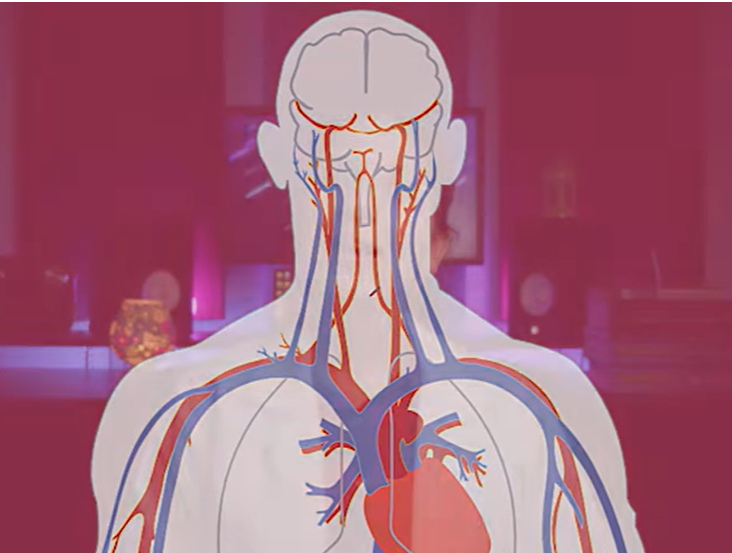Bathing is a simple, daily ritual for most of us. But did you know the way and timing of your bath — and even the temperature of the water — can have a powerful effect on your body and mind?
In this blog post, we’ll explore:
-
The benefits and drawbacks of hot and cold showers
-
Whether you should bathe during fever, cold, or right after eating
-
How bathing habits influence sleep, stress, digestion, immunity, and more
Let’s dive into the science and practical tips that can help you make the most of this everyday routine.
Understanding the Body’s Response to Temperature
Before we talk about the benefits and risks of bathing, it’s essential to understand one thing — your body is designed to maintain a stable core temperature.
-
When it’s hot outside, your body cools itself by sweating.
-
When it’s cold, your body reduces blood flow to the skin, keeping warmth concentrated around your internal organs.
Bathing, whether in cold or warm water, affects this temperature regulation — and that’s why the impact is more than skin deep.

Benefits of Bathing with Hot Water
1. Relaxes Muscles and Joints
A warm bath soothes tense muscles and eases cramps. That’s why we often recommend using a hot water bag for stomach aches — it works the same way on the whole body during a hot shower.
2. Promotes Better Sleep
Warm water helps activate the parasympathetic nervous system — the “rest and digest” part of your body — making you feel calmer and sleepier. That’s why a hot bath at night can improve your sleep quality.
3. Relieves Headaches and Fatigue
Tension headaches are often linked to stiff neck and shoulder muscles. A hot shower works like a micro-massage, releasing that built-up tension.
4. Opens Up Pores and Clears Skin
If you have oily skin or are prone to acne, a hot water bath can help by opening up your pores and removing excess oil and impurities from the skin.
When You Should Bathe with Warm Water

During Fever, Cold, or Congestion
Warm water helps loosen mucus in the respiratory tract. The steam makes it easier to breathe, provides relief from chest congestion, and even reduces fever by regulating body temperature.
After a Stressful Day
A warm bath in the evening helps your body wind down, reduces cortisol (the stress hormone), and prepares you for a restful night.
Drawbacks of Hot Water Bathing
1. Can Dry Out Skin and Hair
Hot water strips away natural oils from your skin and scalp, which can lead to dryness and irritation.
2. Not Ideal for Skin Conditions
If you have eczema, dry skin, or asthma, hot showers may aggravate symptoms.
3. Can Make You Drowsy
Because warm water promotes relaxation, you may not feel fresh and alert after a hot bath, which is not ideal for the start of your day.
Benefits of Bathing with Cold Water
1. Boosts Alertness and Energy
Cold water stimulates your sympathetic nervous system — the “fight or flight” response — increasing your heart rate and giving you a quick energy boost. Perfect for mornings!
2. Enhances Immunity
Studies suggest that regular cold showers can help strengthen your immune system and reduce the frequency of common illnesses.
3. Improves Hair and Skin Health
Cold water seals the pores and retains natural oils on your skin and scalp, reducing dryness and irritation. It can even help with conditions like itching or mild inflammation.
4. Reduces Muscle Soreness and Inflammation
Athletes often use cold baths after intense workouts. It helps reduce muscle fatigue and accelerates recovery.
When to Choose Cold Water Baths
-
After exercise or physical exertion
-
When you want to feel more energized
-
In hot, humid climates to cool down
-
If you have itchy or dry skin
Disadvantages of Cold Water Bathing
1. Not Suitable During Fever
Cold water can cause shivering, which may raise body temperature and worsen fever symptoms.
2. Less Relaxing
Unlike warm water, cold showers don’t relax your muscles and may not help you unwind before bedtime.
3. Not Ideal Before Sleep
Cold water stimulates the nervous system, which can make it difficult to fall asleep.
Should You Bathe After Eating?
The Short Answer: No
Immediately after a meal, blood flow in your body is focused on the digestive system. If you take a bath too soon:
-
Blood circulation may shift away from your stomach
-
It can slow down digestion
-
May cause bloating or discomfort
Tip: Wait at least 30 minutes to 2 hours after eating before taking a bath for optimal digestion.
How to Choose Between Hot and Cold Water
Here’s a simple breakdown to help you decide:
| Situation | Recommended Water Temperature |
|---|---|
| Morning | Cold (for alertness & energy) |
| Night | Warm (for better sleep & relaxation) |
| Fever/Cold | Warm (helps reduce symptoms) |
| After Workout | Cold, followed by Warm (for recovery) |
| Itchy/Dry Skin | Cold (to avoid irritation) |
Best Bathing Practices for a Healthy Life
-
Take Cold Showers in the Morning: It helps kickstart your day with alertness and energy.
-
Take Warm Baths at Night: Helps relax muscles, reduce stress, and improve sleep.
-
Wait After Eating: Avoid bathing right after meals to allow proper digestion.
-
Switch Temperatures Post-Workout: Start with cold and end with warm water to reduce inflammation and aid muscle recovery.
-
Use Comfortable Water Temperature During Illness: Mildly warm water helps manage fever and respiratory symptoms.
Final Thoughts
Bathing is more than just a hygiene habit — it’s a powerful wellness practice. Whether you go for hot or cold water, timing and technique matter.
By understanding how your body reacts to temperature, you can turn a regular shower into a mini therapy session — boosting your immunity, mood, skin health, and more.
So the next time you step into the shower, choose wisely — your body will thank you.